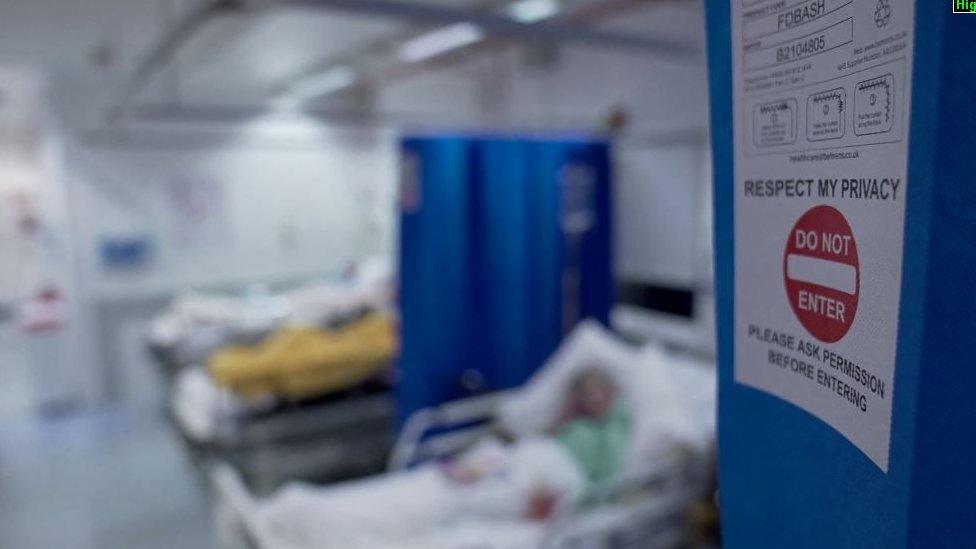NI health review 2021: Turbulence as Covid concerns continued
- Published
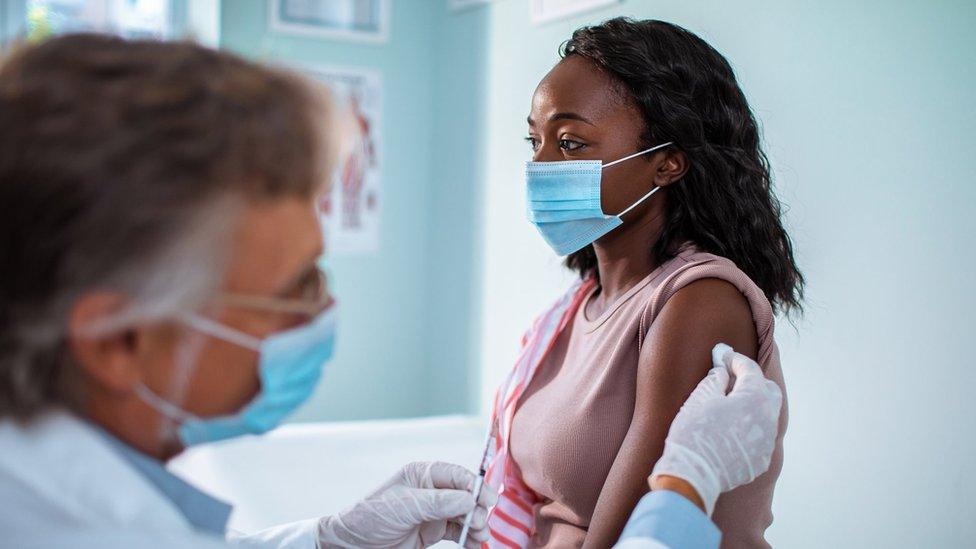
The rollout of Covid-19 vaccines brought hope for many people
2021 was another year completely dominated by Covid-19.
It was ushered in with much-needed hope brought by vaccines.
By January, Oxford-AstraZeneca had joined Pfizer as a vaccine approved in the fight against the virus.
Northern Ireland was still under lockdown and vaccinating care home residents and staff was the priority.
It felt like a race against time and Patricia Donnelly, the doctor in charge of Northern Ireland's vaccination programme, asked people to be calm.
"Please also be patient with people at the sharp end of this programme, the GPs and staff, the teams at the vaccination centre - they're working flat out to get this done."
Hope was tempered with ongoing grief and anxiety though, and January saw what was, at that stage, the highest number of Covid cases and deaths.
Jennifer Welsh, chief executive of Northern Health and Social Care Trust, said there was "huge pressure across the system" and that hospitals in her trust area were "coping, but at great cost".
By February, the grim number of 2,000 Covid-related deaths was reached and the lockdown was extended until 1 April.
Health Minister Robin Swann said he shared the longing for a day when restrictions weren't needed.
"That day is achievable but we have to tread carefully towards it," he said.
Throughout the year, BBC News NI carried stories from inside Covid wards and intensive care units - some of them shocking.
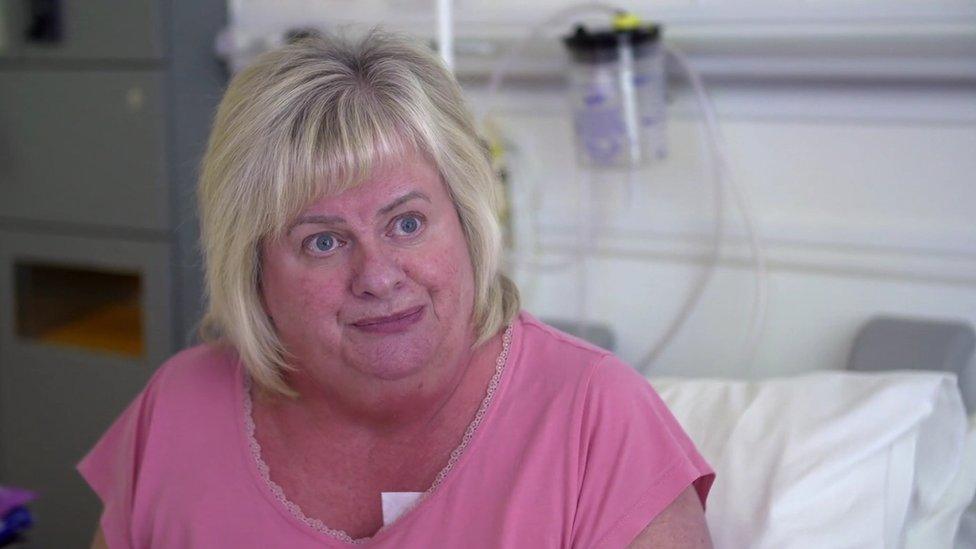
Jacqueline Ogle from Comber, County Down, spent many hours hooked up to the CPAP machine
Staff and patients described coping with the virus, our cameras capturing first-hand the unfolding Covid story.
Jaqueline Ogle from Comber, County Down, was preparing to leave the Ulster Hospital in February after contracting Covid.
She spoke about the two weeks she had spent there, many hours of which were spent hooked up to a CPAP (Continuous Positive Airway Pressure) machine.
"I was probably further down the line, closer to death than I will ever, ever realise," she said.
"They brought me in and introduced me to the CPAP - a horrendous machine; I can see why people struggle with it.
"I can see why elderly people just can't even get it, it just seals your whole face. But I wore it all night."
Belfast's SSE Arena is best known as an entertainment venue, but in March it was transformed into a mass vaccination centre.
About 100 armed forces personnel joined other medics working at the site, administering an estimated 100,000 jabs.
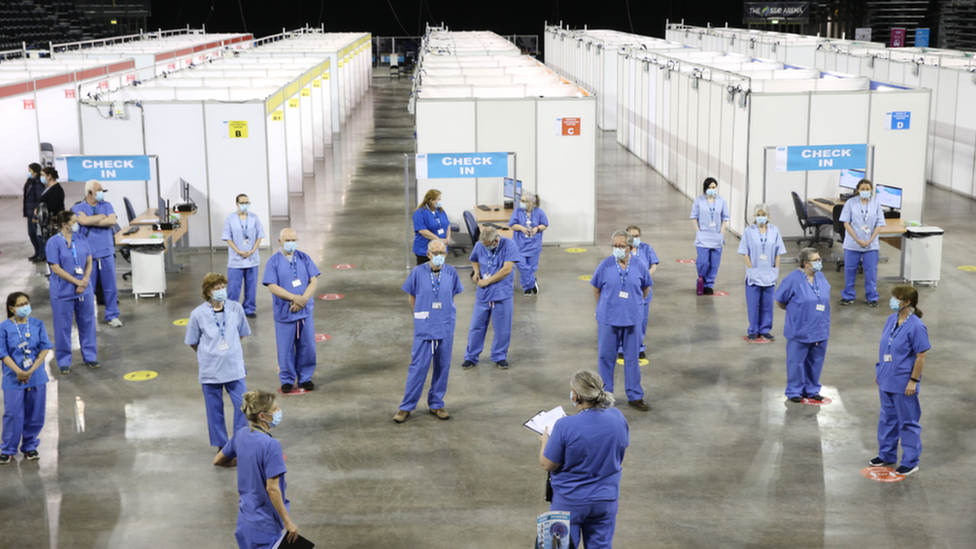
The SSE Arena in Belfast was used as a mass vaccination centre during the pandemic
As spring began, the daily toll of deaths began to slowly fall and the first mention was made of introducing Covid vaccination certification - or Covid passports - as they came to be known.
It would be another eight months before they would become official.
The impact of the pandemic continued to weigh heavily on the health service. Tens of thousands of procedures, operations and diagnostic tests were cancelled, including more than 4,000 red flag cancer cases.
April proved not to be the cruellest month as the Nightingale Hospital was stood down, restrictions were somewhat eased and more than a million vaccines were administered.

The Nightingale Hospital was designed to care for Covid-19 patients who needed ventilation
At times and in certain circumstances there was reason to be optimistic and to look forward.
For many people the health service was unable to deliver and there came a warning from medical staff that the scale of waiting lists here was threatening to undermine the principle of a free health service.
Mark Taylor, from the Royal College of Surgeons, said that behind the statistics were patients waiting in pain.
"We're urgently calling on the NI Executive to work with stakeholders to look not just at short-term plans for this imminent winter but for long-term plans so we don't keep, every quarter, standing here, talking about roughly one in four people on waiting lists," he said.
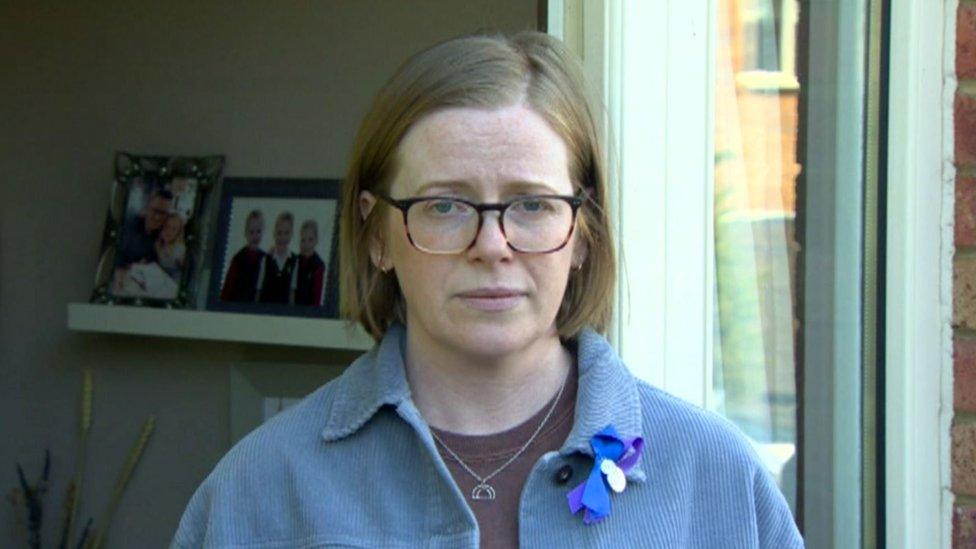
Rebecca Logan, who was an emergency care nurse and is a qualified fitness instructor, said her life had completely changed
More stories emerged of people suffering from long Covid too, among them 40-year-old former nurse and fitness instructor Rebecca Logan.
"My life has gone from being fit and active to basically being housebound and if I have to go out for any length of time, it is in a wheelchair," she said.
The detection of the Delta variant in June in Kilkeel, County Down, prevented the further easing of restrictions.
By mid-July, numbers were soaring and Northern Ireland reported the highest Covid infection and death rate in the UK.
Eventually, this sustained pressure saw some emergency departments (EDs) struggle.
Andrew Dobbin, a consultant at the Ulster Hospital, said in November the stream of very sick patients turning up at ED was "relentless".
Dr Andrew Dobbin says emergency services across Northern Ireland are overwhelmed
He explained that when people were treated for more than 10 hours in ambulances, it meant that emergency departments were "effectively closed for some of those patients".
This year, a spotlight was shone also on social care, when it emerged that Northern Ireland would receive £400m under the UK's health and social care tax rise.
Age NI said most, if not all, of the money should go to social care as it had been "sitting in the shadow of health too long and must be treated equally".
Then there were the public inquiries.
Northern Ireland is having its fair share of public inquiries and 2022 will see if lessons have been learned around transparency following on from the Hyponatraemia inquiry.
So, while the year opened with hope, the emergence of Omicron and rising Covid case numbers mean it is closing with uncertainty.
On Thursday 4,701 new cases of Covid-19 were recorded in a single day.
Despite enduring the most difficult of years, Northern Ireland's health service could be facing a yet more turbulent time in the months ahead.
Related topics
- Published3 February 2021

- Published27 April 2021
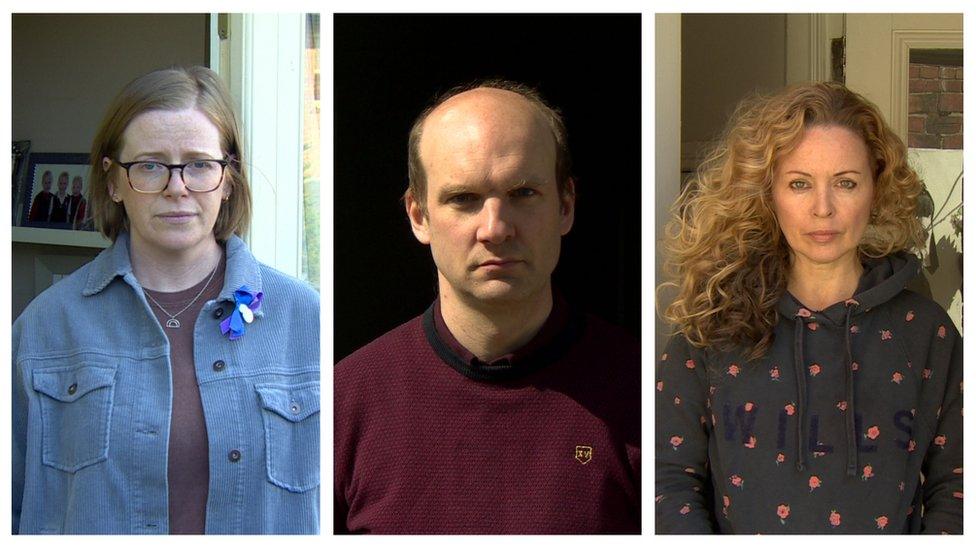
- Published24 November 2021
